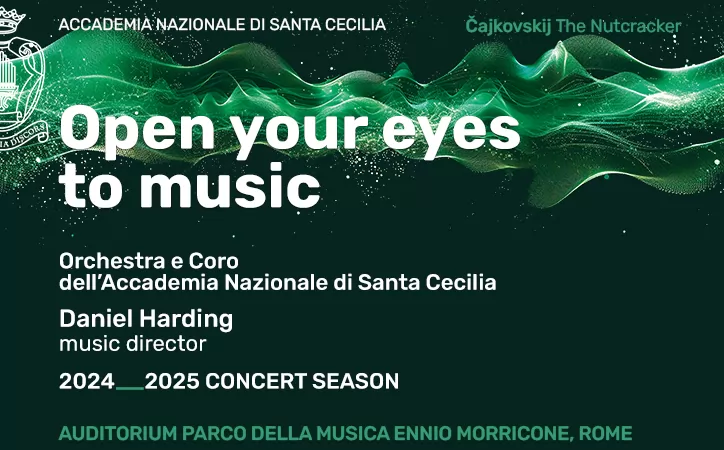Borrowing best-sellers in Rome
Pompei, the latest book by Robert Harris about the last hours before Vesuvius struck, was on the shelves of the S. Susanna lending library within two or three weeks of its publication this year.
Its a very popular new title, remarked Louise Brown, the young Australian chief librarian. So was his Enigma, about the secret wartime code-breaking outfit at Bletchley Park in Buckinghamshire. We do try and keep up-to-date. As you see, we already have about 50 books that came out in 2003.
The library, next door to the late-renaissance S. Susanna church, the officially-designated American Catholic church in Rome, on Via XX Settembre and a stones throw from the Grand Hotel, stocks some 10,000 titles. We have something for everybody, Brown explained, with sections in the two rooms ranging from Rome itself to childrens books, from biography to architecture. But of course the most sought-after one is fiction, with mystery not far behind, perhaps followed by true stories about peoples personal experiences. Theyre in great demand, especially if theyre about somebody or something readers have heard of in, say, the last three years.
Brown thinks that English-speaking residents of Rome read much more than they do at home. Ive really indulged in reading since I got here. Ive discovered fantastic things I would never have broached before. We serve a real need, especially for new arrivals. Some devour a book a day. Think of the cost without us. It makes reading in Rome into a real dalliance.
With her in the library was Giorgina Moretti, another Australian (Its an Australian mafia here!) and a long-standing volunteer who made the library sound like an information booth as well. We dole out a lot of tips with the books, especially to people who are new to Rome. I want to have roast beef for lunch on Sunday. Where can I find it? Whats the best type of pasta to buy? But a lot of our borrowers just like to have somebody to speak English to, especially if they run into problems with the bureaucracy. We always tell them the secret of living in Rome is patience, patience and more patience.
But of course another reason why people come to us is because theyre only here for two or three years, and so dont want to accumulate books. A question of space.
Although the adjoining church keeps a statutory eye on the library, Brown asserted that it is totally self-supporting, thanks firstly to many donations and to the fees paid by some 300 subscribers, and secondly to its 30 unpaid volunteers. Theyre very generous with their time. Without them, this place simply would not function, she said.
Another surprise is that, although the church is American, most of the librarys readers hail from Britain or the Commonwealth. The Americans usually drop in on Sundays, after attending a packed Mass next door. Further, the premises of the library and the church belong to a contiguous convent, inhabited for centuries by cloistered Cistercian nuns. On the other side of the convent, and once part of it, are the stately barracks of the soldiers from the presidential horse guard, the Corrazzieri.
But the biggest surprise is that, although it is associated with a Catholic church, very few of the librarys readers or volunteers are Catholic themselves. This fact was borne out by the newly-arrived vice rector, Father Jeremy Tully: Let us say the library and its readers come within the scope of our ministry of hospitality, of reaching out to as many people as possible, regardless of creed.
He and the rector, the Reverend Paul Gerard Robichaud, a former naval chaplain, belong to the American Paulist Fathers, committed, as a parish booklet has it, to ecumenism, evangelisation and reconciliation. Pope Benedict XV entrusted the Paulist Fathers with the church in 1922 to cater for the needs of the growing American community in Rome. They thus came into possession of one of the 25 oldest churches in the city. It stands atop the ruins of an ancient Roman house dating from around 280 AD, thought to have been the home of relatives of the last big persecutor of Christians in the city, the emperor Diocletian. The church is named Susanna after a niece of Diocletian, apparently beheaded by hired killers in her own rooms on the emperors orders after her refusal to marry one of his generals. The reason for her no was a secret Christian vow of virginity.
The Cardinal priest of S. Susanna, the staff confirmed, is still Cardinal Bernard Francis Law, who resigned as Archbishop of Boston in the United States earlier this year after being accused of hushing up reported paedophilia by priests in his diocese.
S. Susanna Lending Library. Via XX Settembre 15 (2nd floor), tel. 064827510. The library is holding its annual book sale on Saturday 18 and Sunday 19 October, 10.00-12.30.
Opening hours. Sunday 10.00-12.30, Tuesday and Thursday 10.00-13.00, Wednesday 15.00-18.00, Friday 13.00-16.00. Monday, Saturday, holidays and during transport strikes closed.
Membership. Single subscription (5-book limit): 3 months (15), 6 months (20) or 12 months (30), plus a refundable deposit of 20. Family subscription (10-book limit): 6 months (25) or 12 months (35), plus a refundable deposit of 40.
Picture: Some of the volunteers who keep the S. Susanna lending library functioning.

















